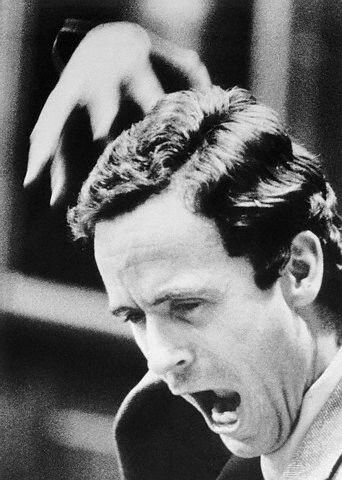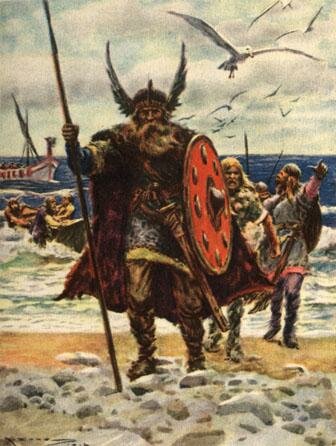Top 10 Lessons Learned from World War 2
Suggested by SMSThe Second World War had a drastic and unalterable effect on history, and therefore on our everyday lives. Families ended because of the number of young men and women, children and grandparents who died due to fighting, continuous civilian targeting by bombing campaigns, and accidents. Countries were formed, crippled, invented and destroyed by the aftermath of the war. Alliances were tested, created and strengthened, mass deportation and fleeing redistributed people, cultures, families and faiths across the globe and one of the worst atrocities in the history of mankind happened behind the cloak of fear, confusion and outright horror. As gruesome as it might seem, there are things we can learn from all of this, things we must try to understand and mistakes we must face. More then anything we have to remember, while too much was lost, too much given for us as the successors to simple ignore the lessons of our own history. More importantly we must never miss a chance to mock a Nazi. So here is a list of the top 10 lessons learned from World War Two.
10. No, Really, Never Invade Russia in the Winter
Never invade Russia in the winter! Hitler, not renowned for his military strategy despite how long and hard World War II was, surely could have remembered this lesson exemplified by Napoleons invasion in 1812. If Napoleon can’t do it, it’s pretty much a bad idea, right? After all the 1812 invasion was the turning point in the war with Napoleon. What’s more a great written and unwritten rule of war is never try to fight a war on two fronts. Russia is an especially bad choice for a second front because of its sheer size, and its winters. As the Germans invaded the Russian army simply fell back, fighting small holding motions, and waiting for the winter to set in reducing and crippling Hitler’s army. What’s more the second front occupied over half of the Germany military force giving the allies breathing room and eventually success. Simply put the real reason Nazi Germany lost the Second World War, according to a lot of historians, is because Hitler opened up a second front with Russia in 1941. Russia suffered 10 times the casualties then any other country during World War two.
9. Being Saved is Great, Unless you’re Poland
The Second World War began, as far as Britain and the allies are concerned, in September 1939, after a significant effort to control and pacify Hitler by Neville Chamberlain and his attempt at appeasement. But after Hitler took over Czechoslovakia, and not just the Sudeten land, (an area given to Czechoslovakia as a buffer against Germany by the treaty of Versailles, and given back because of the number of Germans living there), public opinion shifted and the government of Britain and France were finally able to take a stronger stance, (not to mention realizing they had to.) So France and Britain pledged to defend Poland in April 1939. Essential the Second World War was declared in defense of Poland, right? That’s what it says on the declaration at least. But Poland’s rescue never really came. After the war was over Poland had land taken from it in order to move it west and eventually became a satellite of the USSR – without a democracy. It was the site of some of the most horrific war crimes, including the imprisonment of 100,000 Polish citizens, not to mention the building of Auschwitz! Poland was forgotten and although it was rebuilt, of sorts, it never flourished in the way western democracies did, (and who can blame it after being thrown to the Iron curtain and the wrong side of the cold war.) So the this lesson, learned from World War two, is that countries rarely go to war for the reasons they say, and they rarely put any effort into making it hiding the fact after the war is over, because everyone has too many other things on their mind.
8. War can do a Lot of Things
The Second World War also taught the world, in clearer terms then it had been before, that war is a great fuel for invention and a great solution to depression. Germany was able to develop technologies because of the pressing need created by the war effort. Among other things German inventors and scientist were responsible for the development of the rocket age with the V2 rocket program designed to destroy London, England. This technology later went on to produce all modern day missiles as well as helping to inspire the space program. Computer technology developed because of America efforts to crack enemies code and the enigma machine, (the decoding and coding device famed in Hollywood), can actual be seen as the first computer. The interstate system in America was inspired by the German autobahn construction initially started to help create jobs in the country it later became pivotal in the transportation of soldiers and goods for the war effort. Jet engine planes were also created by German engineers during World War two and are the forefathers of all modern jet engine aircraft. Finally the Second World War was a direct result of the depression and the hyperinflation Germany suffered post World War One. In order to salvage the economy Hitler put Germany into a war economy, building and making munitions, naval ships (after the Anglo naval pack in 1935 between Germany and Britain), and generally buying more than the country could afford to create work and industry. The only way to sustain this large effort was to use these materials, in war, and take hold of more resources by conquering others.
7. Don’t Punish the Enemy, too Much
Leading on from the last item we can see that one of the main reasons for the outbreak of the Second World War was the treatment of Germany after the First World War and the harsh conditions of the Treaty of Versailles. The picture above is of Lloyd George, Orlando, Clemenceau and Woodrow Wilson at the signing of the treaty at the Palace of Versailles, France in 1919. After the First World War it was only natural to want to punish Germany, and so they did, but the conditions, placed on a country were to harsh and created a great deal of resentment in the German People. (Remember they are not Nazi’s, just people who supported their country in a war, patriots really, who felt punished for serving their country.) This resentment created an opportunity for radical ideology. In fact the treaty of Versailles was one of the main rallying points Hitler’s party, (then called National Socialist German Workers Party, or the NSDAP) used to gain support. Letting revenge and greed lead them in punishing Germany to harshly the allies created an opportunity for another radical ideas to gain prominence, and for what? One of the few payments of reparations the country actual managed to pay was a consignment of a few thousand telephone poles. Some price for the Second World War!
6. Looks can be Deceiving
Here is a little recognized lesson from the Second World War. The picture above shows the three big players in the allied command, Joseph Stalin (age 65), Franklin D. Roosevelt (aged 61), and Winston Churchill (aged 69). They are sitting on the porch of the Russian Embassy during the Tehran Conference. Now, it’s not entirely important for this lesson, but the Tehran conference, (codenamed EUREKA) was the first meeting between the ‘big three’ and was held in December 1943 in Iran. It was held to discuss the second front in Western Europe and to collaborate on the war effort. (The Big Three also recognized Iran’s independence at the Tehran conference.) The lesson to be learned here can be seen in the photography above. Churchill is the oldest, and he looks it doesn’t he? He is also the one reputed to have bad habits, to never be seen in public without a cigar, and in ill health. Here’s the thing, of the three it was Churchill who lived the longest, living to the age of 90!
5. Looks are Important
Churchill’s looks, if you can believe it, are also an important factor in the next lesson learned from World War Two. Namely his characterized figure, (the sign of the V, the famous suit complete with hat, and the Cigar in hand), was a big factor for moral in England. His presence and confidence was a boost both at home and on the front lines. If you can’t believe it then consider the quote from lord Wellington during his campaign against Napoleon, ‘his hat on the battlefield is worth 10,000 men.’ The fact is looks are important. The Queen also showed signs of recognizing this when she stated, after the bombing of Buckingham Palace, that she could now ‘look the east end in the face.’ The east end of London had taken a significant amount of the bombing during the war and the Queens comment was designed to draw attention to her image as a Queen suffering alongside her people. The idea of image, or propaganda, played a huge part in the Second World War, and was used as to great effect by Germany in gaining support for the effort. But it was also used outside of Germany as we can see form these two examples. It was the Second World War that taught the world, (more certainly then anyone had before), the value of looks and the power of rumors and political posturing.
4. Names are Important
Code names are important to be precise. Recent work of anthropologist looking into linguistics have found that since World War two codenames have been developed with the public’s opinion in mid. Words have a surprising amount of effect on us, some of it is due to tacit (unspoken) cultural knowledge, some of it because of explicit, (spoken of) cultural knowledge. Simple put a code name made public can be used to define an operation, or even an entire war and the public’s emotional reaction to it. The process of developing Codenames began in earnest during the Vietnam War but the lesson was earned during the Second World War. Churchill said it better, ‘no mother should have to say she lost her son in the battle of Broken Spoon!’ this lesson has become so well known in military circles that the United States have actually developed a computer program to create codenames called Code Word, Nickname, and Exercise Term System, (or NICKA.) It is also now common practice for military codenames to be accepted or rejected based on a political reasons regarding how well the name will drum up support for the action and the war in general.
3. Never Trust a Radical
Never underestimate a radical, but it’s important to draw attention to the culprit as well as the rule, so ‘Never trust the Center,’ is probably better. Franz von Papen, pictured above, can be blamed for the entire Second World War. (But only if you really have to find a human culprit to blame for a large spread of factors produced by both social and economic issues largely developed over a long period of time without any one knowing it.) So maybe it’s a bit unfair, but if you do want to find a catalyst, or an immediate human action that set the chain of events in motion, you could use Von Papen. Leader of the Center party until 1932 in the short lived German Reichstag government between the First and the Second World War Von Paper was a fairly popular politician who had once been elected Chancellor of Germany, (like Hitler was in 1933 before he became Fuhrer.) The figurehead of the Reichstag goverment, the President, Paul Von Hindenburg, elected the chancellor. But Von Papen and his party were losing popularity with the rise of Hitler’s Nazi party, and Von Papen saw Hitler as a slow thug who he could use to gain more power for himself. Famously Hindenburg disliked Hitler and would never have elected him to the position of Chancellor, (he said Hitler had the manners of a postman, meaning of a low caste), if Von Papen had not convinced him to do so. It turned out that Hitler was no slow thug, (kind of but, still…), and Von Papen was no more able to control him then he was able to stop the coming political change. By April 1933 Hitler’s party had started to lose momentum and he may, just may have disappeared into nothing had Von Papen not miscalculated the control he could wield over Hitler. So another lesson learned from the Second World War is that personal ambition can led to bad choices and have devastating effects. But more importantly, never underestimate a radical!
2. Air Power
What effect the bombing campaigns of the Second World War had in bringing the war to an end is a largely debated question. There is probably no one answer. But putting aside the horror and loss of civilians and military personnel it is a fact that no one has since won a war without supremacy in the air. This lesson was learned during the Second World War when countries started developing and trusting the air force to a much greater extent. Before the Second World War the emphasis had been the navy, and this was the reason behind the Anglo Naval Pact of 1935. After his election to Chancellor in 1935 Hitler began building Germany back up by systematically going against the terms of the treaty of Versailles, including the provision that stated Germany was not to have a navy. Britain, whose supremacy in the water was well founded and required because of its island nature, was worried about losing such supremacy and signed an agreement with Germany saying they could develop a navy as long as it was no more that 35 per cent of the tonnage of the British navy. Such was the importance of the navy then, and such is the importance or the air force now. Of course naval supremacy is still important, as is army supremacy, but World War Two taught us that from now on air supremacy would be just as important.
1. Ideology, Anger and Fear
During the course of the Second World war over 12 million people were killed in the holocaust, 1 million British soldiers died, 1 million German Soldiers died, 1 million America soldiers died, 10million Russian soldiers died, and that’s not counting the number of civilians who died during the endless bombing campaigns or the numbers of soldiers from other counties like Japan, Italy, Australia, Canada, New Zealand, and many others. These are rough numbers, but they make a point. The loss of life during the Second World War was immense. In fact the loss of life during the Second World War defines what
‘Immense’ can mean, and horrific, let’s not forget horrific.
Some of the lessons we can learn form the Second World War, (stated here and elsewhere), try to explain and predict the reasons for its outbreak; others try and rationalize the great loss of life. The words of George Santayana have been echoing our ears ever since, ‘those cannot learn from history are doomed to repeat it.’ But at the heart of it all, there is an Ideology. One that people ran to because of fear and clung to because of anger. We all believe in things, we are all convinced of natural truths and self evident morals absolutes like good and evil, right and wrong and ideology has served to bring peace, justice and law in the past. But an ideology, a cult of true believers in the Nazi doctrine, as well as fear and anger all around brought about the terrible results of World War two. While the lesson is not a compass to predict the future, nor a solution to the past, it is perhaps the most important lesson of World War two. Fear, anger and a twisted ideology can cause unbelievable consequences. The hard lesson is that we cannot always know what is right and what is wrong but that fear can lead us down a wrong path.










Wow this was an awesome post!!Presented all the complexities of the war without any undue simplification that our text books often present.